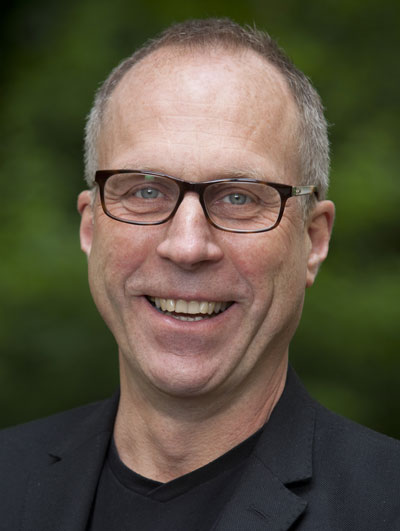Hans Hassle – Companization
Today we are proud to present the CEO of Plantagon
Hans Hassle as Pennybridge’s twentieth guest blogger this summer.Hassle is together with the Native American nation Onodaga Nation the founder of Plantagon. And was the first European citizen ever to be appointed CEO of a company owned by a Native American nation and run outside of the United States. Plantagon is a hybrid between a for profit company and nonprofit association.
Hassle is also a pioneer in Corporate Citizenship and CSR, and has over 30 years experience from the business sector. And was awarded European CEO of the Year 2012, Sweden, by the British magazine European CEO, recognized as “A world leader in the field of corporate social responsibility”. He was also personally awarded to the World Finance 100 list the same year recognizing his work to ”…create economically motivated companies that build moral values.”
Hassle is also Co-author of the Global Compact Research Report Sweden published by UN Global Compact in 2004 and Author of the book ”Business as Usual is over”, published in 2012.
Maximizing profit is no longer a reason for a company to exist.
The official at the Registration Authority, discussing the application to register Plantagon early 2008:
“You cannot register this Articles of Association for Plantagon, I am sorry.”
“Why?”
“Because it does not meet the intentions of the legislators.”
“Why?”
“Because you do not put the owners’ economic profit in absolute focus.”
“Why?”
“You voluntarily restrict the company’s room for maneuver when you incorporate social responsibilities the way you do…”
“Yes, but that’s exactly what we want to do! We want to protect the future company from bad judgment due to greed, becoming too short sighted regarding environmental, labor and human rights issues…”
It took me nine months to get the Articles of Association for Plantagon registered. As far as I know we are still the only company on the global scene that institutionalized the values and responsibility of the founders and owners. Working for Plantagon I am as a CEO, together with my Board of Directors, personally responsible not only to perform according to the object of our activities, but also to perform according to the social purpose stated in the Articles of Association. To put it simple: We have to make money and keep our actions within a clear ethical framework simultaneously. We are also forced to be transparent and use democratic governance.
Any Swedish company could do the same, as we paved the way for it. This would mean a lot to prevent companies from acting eg. as Carema, defending this with ownership requirement of profit maximization.
The Companization
In the past 20 years I have, together with friends at NGO’s, business schools and companies worked out an alternative organizational model. We call it the Companization. This model is grounded in the shareholding company’s evident effectiveness but with the added aspect of creating a balance between economic driving forces and social responsibility. The Companization is a model for third generation corporate social responsibility.
While the first generation of CSR shaped its guidelines, the following generation focused more on accounting for the social aspects of its work. In the third generation ethical guidelines for operations are implemented in the bylaws and statutes of the company. With this addition, companies are obligated to abide by a previously defined framework of ethics.
A Companization consists of two different legal organizations: A for profit shareholding company and a nonprofit association open for any and all members. The Articles of Association of the company and the association’s Statutes share identical economic and social goals and the same ethical framework.
The implementation of ethical questions in a corporation’s Articles of Association introduces moral issues to an otherwise purely economic forum.
Through the implementation of shareholding responsibility in Statutes of a nonprofit organization, economic issues are embodied in a predominantly ideological forum.
The nonprofit association holds a 10% share in the corporation, yet is responsible for appointing 50% of the board members in the shareholding company.
To involve individual members on the nonprofit side also in the economic aspect of the company’s actions, a sort of “Generation Share” is issued (registered in Sweden as Closure Rights) in the same amount as the number of shares the company holds. A Closure Right provides its holder’s descendants with the right to retain a portion of the revenue from the nonprofit association’s future sale of the corporation.
When the Articles of Association, Statutes, control documents and profit incentives regulate the enterprise and responsibility for its operations in this way, the board of directors and members in both organizations take personal responsibility for carrying out their work within clear guidelines.
Adam Smith is accredited with having written the work in classical economics that has had the greatest impact on our perception of the forces that steer capitalism. 1756 he wrote in The Wealth of Nations:
”This disposition to admire, and almost to worship, the rich and the powerful, and to despise, or, at least, to neglect persons of poor and mean condition, though necessary both to establish and to maintain the distinction of ranks and the order of society is, at the same time, the great and most universal cause of the corruption of our moral sentiments.”
Today some of the single largest global economies are private, owned by multinational corporations. Their position as dominant institutions in society entail an enormous amount of responsibility for ”the greater good of all” on the part of their owners, board of directors and executive management.
But how are they doing in this respect?
The systems that we rely on today in striving to build a wealthy and productive world tend to reward greed, short-term considerations and fear; this is mainly an outgrowth of the economic game rules we so freely accept.
Until political work hopefully catches up with business, we need companies that are not only pre-occupied with their own wealth – we need businesses that prove to have a deep insight into the responsibility they have for the collective aspects of society. Companies must strive for core operations that not only benefit society but also contribute to the continued development of democratic and transparent forces in society.
”The Companization” is my attempt to contribute to the development that I deem to be necessary. It is a new and modern variation of the shareholding company in which maximal competitiveness and productivity is achieved through voluntary responsibility, complete transparency and democratic governance.
Yes, it’s idealistic but still good business.
Its fundamental principle is to combine commercial and nonprofit incentives in the same organization, make money and simultaneously do good, then use the power that money and the support of a strong opinion gives to achieve general, social benefits – far beyond contributing to economic growth.
There is evidently a great demand among people around the world for this type of companies and brands. Maybe, maybe then – waiting for politics to catch up with economy – we do not need to spend time we do not have to change the ethics and morality of the greedy business culture. Maybe, maybe then we can achieve more rapid changes simply by using the system as it is instead and prove it is simply good business to share and show a clearer and more engaging social role.
Big changes always start with small ideas. To me, it’s not ridiculous or naive to see yourself as one of the many pieces of the puzzle we need in a large context. Therefore, because we see our idea of the Companization as one of the many pieces of the puzzle that might play a role in finding a new direction, we present it and use it, although many will call us idealistic dreamers. OK, but it is a dream while awake.
More than twenty years of experimentation in the period 1986-2008 led us here. It is CSR 3.0 going on right now and you can join the work at www.feedingthecity.com or www.plantagon.com.
//Hans Hassle





